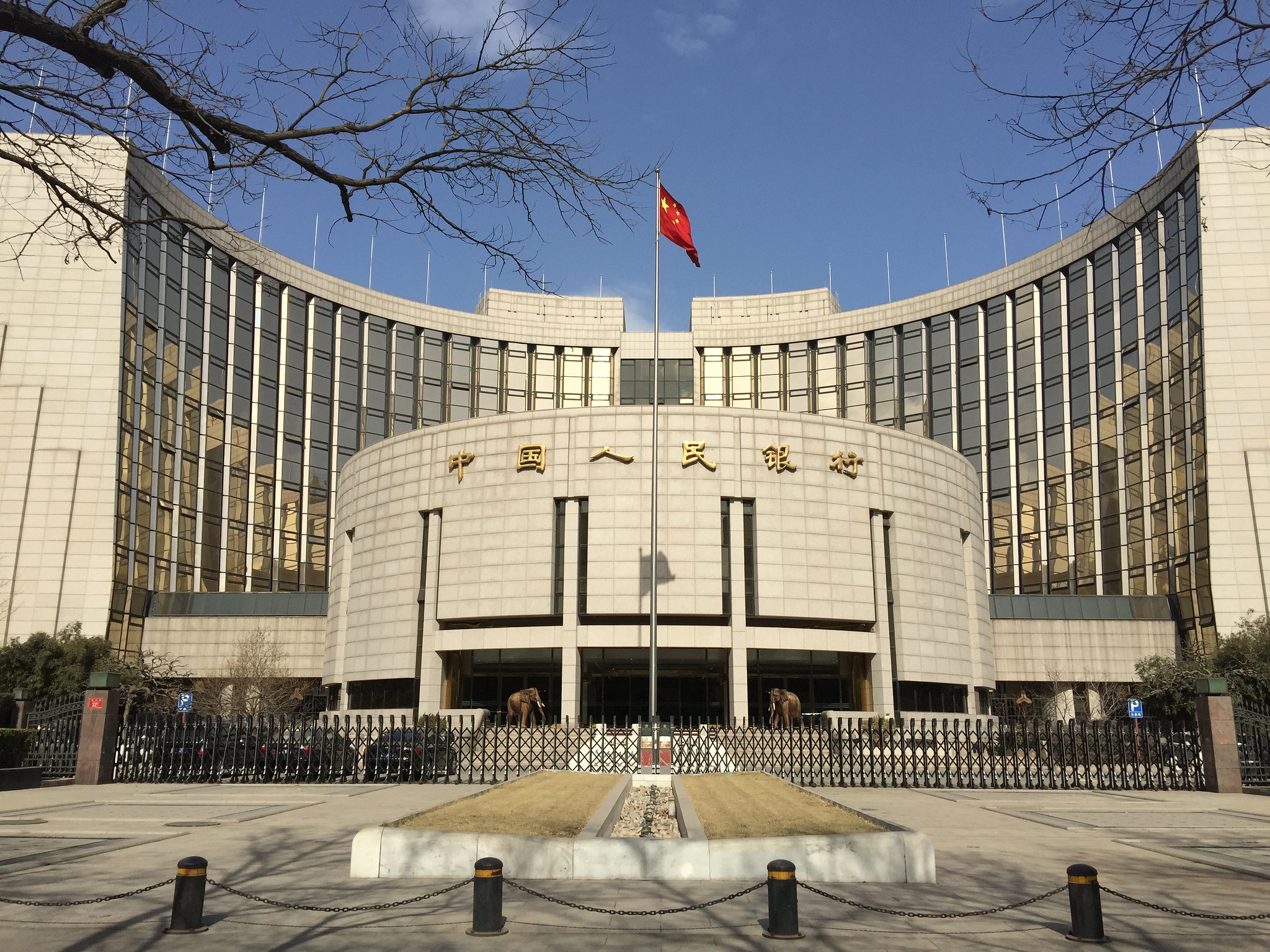Ant Group to Establish State-Backed Credit Scoring Company
Lawfare’s biweekly roundup of U.S.-China technology policy and national security news.

Published by The Lawfare Institute
in Cooperation With

On June 23, reports surfaced that Ant Group is negotiating a deal with Chinese state-owned enterprises to create a new credit scoring company. The company would be fueled by the financial data Ant continues to collect on the more than 1 billion users of its Alipay app. The deal is not yet final; reporting suggests that negotiations currently center on who would manage the new company: Chinese regulators or Ant directors.
Ant Group also runs a private social credit company, Sesame Credit, which was one of a few companies authorized to run trial financial credit scoring services in 2015. (Sesame Credit paused its scoring in the spring of 2020, as the coronavirus took hold in China.)
Since the debut of the social credit system, China has expanded it to encompass social as well as financial deeds. Unlawful or even socially undesirable actions (like not paying off debt, or getting in a fight with a neighbor) earn citizens a place on a blacklist of “untrustworthy persons.” The list is designed to be “coercive, rather than punitive,” per China scholar Jeremy Daum, as people can work or comply their way off it.
Under the new proposal, the People’s Bank of China would allow Ant to develop a new credit scoring system. At least one commentator worries that this arrangement will deter other entities with consumer data, like Tencent, from sharing data with Ant. The question of public or private control over the data as well as the analytic tools used to create the scores may also complicate the venture’s future.
Chinese consumer debt has spiked recently. Rhodium Group analysis shows an expansion in household debt in China over the past five years that exceeds the debt racked up by American households from 2003 to 2008.
G-7, NATO Issue Statements Against China
In recent weeks, both NATO and the Group of Seven issued statements raising alarms about China’s economic, foreign and domestic policies. President Biden met with leaders of the other G-7 nations—Canada, the United Kingdom, Germany, Italy, France and Japan—in Cornwall from June 11 to 13. On June 13, the G-7 issued a communique covering a host of international issues, including trade, climate change and gender equality. Although China was mentioned explicitly only a few times, most commentators interpreted other parts of the statement as oblique references to China.
The G-7 communique explicitly criticized China’s “non-market policies and practices” and its human rights record in Xinjiang and Hong Kong. But elsewhere, the statement calls for an “open, interoperable, reliable and secure internet” and “values-driven” infrastructure development that is “transparent and financially, environmentally, and socially sustainable.” The calls for openness and interoperability are likely a critique of China’s internet censorship practices and its “Great Firewall,” while the calls for reliability and security seem to be referencing Western concerns over supply chain vulnerabilities and Chinese information technology suppliers. Meanwhile, the comments on infrastructure development seem to reference China’s Belt and Road Initiative, which has been criticized for its lack of transparency and sustainability. The G-7 announced a rival initiative, “Build Back Better World,” which aims to “beat back [the Belt and Road Initiative] by offering a higher-quality choice.”
Biden then attended a one-day NATO summit in Brussels on June 14. NATO, an alliance of 30 Western countries traditionally focused on countering Russia, issued an explicit warning about China for the first time. The statement highlighted several technological aspects of the threat posed by China, including cyber threats, disinformation campaigns, and emerging and disruptive technologies. Although the communique called China a “security threat,” some NATO leaders were more cautious. In a press conference, British Prime Minister Boris Johnson warned against descending into a “new Cold War with China,” with similar comments from German Chancellor Angela Merkel and French President Emmanuel Macron.
On June 15, China’s mission to the European Union condemned the statement, calling it a “slander on China’s peaceful development” and a “continuation of the Cold War mentality.” The Chinese response criticized NATO’s heavy spending on military technology and characterized China’s role in the global order as a “force for peace.” On the same day, China flew 28 air force jets into Taiwan’s air defense zone, the fifth incursion that month.
Other News
U.S. Blocks Solar Technology From Xinjiang
The U.S. Department of Commerce added five new companies with ties to Xinjiang to its blacklist, including Hoshine Silicon Industry Co., a major supplier of the important solar panel component polysilicon. The company was added over fears of forced Uighur labor in Xinjiang supply chains, although definitive evidence in this case seems lacking. The United States, however, stopped short of banning all imports of polysilicon from Xinjiang. The Biden administration issued a statement saying that the latest bans would not affect the United States’ ability to meet its clean energy goals.
Hoshine is a major producer of the polysilicon used in solar panel production worldwide, although the company does not ship to many U.S. manufacturers directly. Some experts speculate that the ban will slowly be scaled up to include any finished solar panels built using polysilicon from Xinjiang. U.S. Customs and Border Protection officials, however, have downplayed this possibility.
The worldwide solar energy supply chain has recently faced record-high costs for basic materials like polysilicon and for labor and shipping. Xinjiang is the source of 45 percent of the world’s polysilicon for use in solar panels, and another 35 percent comes from other parts of China.
In response to the new blacklist additions, the Chinese foreign ministry said it would take “all necessary measures” to protect the interests of Chinese companies.
China Presses Ahead With Cryptocurrency Mining Bans
China’s Sichuan province, a haven for bitcoin miners, has banned the energy-intensive practice of bitcoin mining weeks after another province, Inner Mongolia, did the same. Other Chinese regions and provinces, including Qinghai, Yunnan and a district of Xinjiang, have followed suit. The recent bans are projected to eliminate 90 percent of bitcoin mining in China. The country mines 65 to 75 percent of all bitcoin in the world.
The bans follow calls from Beijing for provinces to crack down on both bitcoin mining and trading. China’s State Council has cited concerns about the volatility of crypto values, and its use to facilitate illegal transactions, as well as the heavy environmental toll of crypto mining. Commentators have been careful to note that the bans are not yet nationwide, nor do they constitute a full ban on cryptocurrencies; rather, they simply ban the practice of cryptocurrency mining.
Bitcoin mining provides the processing power the global bitcoin network uses to process transactions. In the wake of China’s bans, the overall processing power of the bitcoin network has dropped by approximately 35 percent. As the number of bitcoin miners decreases, the practice could become more lucrative for miners in other regions, including North America. Bitcoin miners have been closing up shop in China and migrating to other parts of the world, including the United States, especially Texas.
Well-known investors in the U.S. have begun divesting their bitcoin holdings out of concern that China will ban cryptocurrencies entirely, and in the wake of several prominent bitcoin-enabled ransomware attacks in the United States.
CFIUS Halts Sale of Semiconductor Firm as China Accelerates Chip Research
On June 15, the Committee on Foreign Investment in the United States (CFIUS) halted the sale of a semiconductor manufacturer that operates primarily in South Korea to a Chinese private equity group. The company, Magnachip, specializes in the semiconductors necessary for digital displays. Though the firm is headquartered in Delaware, its factories, employees, and sales are almost entirely in South Korea and elsewhere abroad.
At least one commentator sees the CFIUS decision as a continuation of the committee’s expanding reach. In recent years, CFIUS, like the White House, has broadened its definition of “national security” (particularly following the Foreign Investment Risk Review Modernization Act, which expanded the committee’s jurisdiction). CFIUS’s purview now comprises everything from medical technology to personal finance to social media.
Chinese investment, particularly in technology sectors, remains a target for CFIUS. Despite Biden’s revocation of the Trump-era ban on TikTok, a CFIUS review of ByteDance’s ownership of TikTok “remains under active discussion” as of early June. Earlier this year, Biden reportedly ordered CFIUS to intensify its scrutiny of Chinese investment in U.S.-based tech startups.
Traditionally, CFIUS reviewed those transactions of which it was notified, but in recent years it has conducted active investigations into transactions that might otherwise fly under its radar. The Magnachip deal was one such instance in which CFIUS reached out of its own accord.
The pause on the sale comes just days after Chinese President Xi Jinping tapped Vice Premier Liu He, his most senior economic adviser, to lead a national program for “third-generation chip development.” Liu has been the head of Xi’s technology reform task force since 2018. The Chinese Ministry of Education has announced semiconductor research as a top priority, and China’s universities have responded with expanded offerings in the topic: Shenzhen Technology University will join forces with Semiconductor Manufacturing International Corp. to launch a school focused on integrated circuits. The Ministry of Science and Technology and the National Natural Science Foundation of China recently pledged significant financial support for research and development in cutting-edge chip technologies.
Commentary
On June 23, Apple Daily, Hong Kong’s most prominent pro-democracy publication, closed, following the arrests of its writers, editors and publishers. James Palmer of Foreign Policy gives his thoughts, the Financial Times condemns the closure, and Bill Bishop rounds up reporting on the event in his Sinocism newsletter. British Foreign Secretary Dominic Raab called it a “chilling blow to freedom of expression in Hong Kong.”
YouTube recently was accused of unnecessarily removing videos documenting human rights abuses in Xinjiang. Eileen Guo covers the video-sharing platform’s pattern of censoring Kazakh and Uighur activists for MIT Technology Review.
Antonio Regalado profiles Alina Chan, a postdoc in gene therapy for Harvard and MIT who has been integral in keeping alive the online speculation about the lab leak theory of the coronavirus’s origins.
Andrew Deck explores “Factory TikTok” and finds an ecosystem of Chinese marketers promoting particular Chinese factories by sharing videos of their goods with TikTok users.
Ryan Fedasiuk covers the global reach of China’s army of internet trolls for the Net Politics blog at the Council on Foreign Relations.
Nina Palmer argues for the Innovation and Competition Act, a bill addressing U.S.-China competition, as a successful example of progressive policy, urging those on both sides of the aisle to support it.






